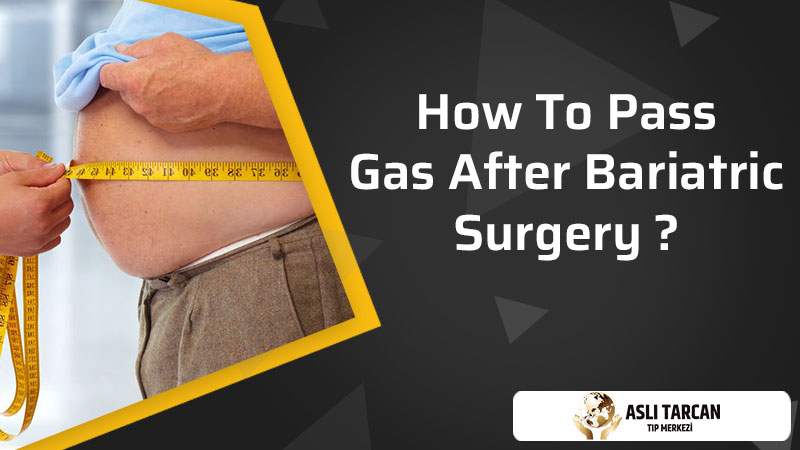How To Pass Gas After Bariatric Surgery Patients mostly ask how to pass gas after bariatric surgery. Trapped air after bariatric surgery make people uncomfortable. After weight-loss treatments it is normal to have high bowl movements. As a result of Bariatric surgery patients suffer from diarrhea and dizziness most. One of Anesteasea effects is stomach and intestinal air traps.
After all kind of surgeries, it is normal to have bowl problems and trapped air aches. Doctors prescribe gastric and intestinal regulating drugs for inpatients for how to pass gas after bariatric surgery. These drugs regulate all functions. Thus, the air in the stomach does not disturb the patient while in the hospital. However, bariatric surgery patients are more uncomfortable with this situation after the operation.
As the stomach shrinks by bariatric surgery, the compressed air puts more pressure on it. For this reason, a caregiver comes as soon as the patient wakes up to pass the gas after the surgery. The caregiver raises the patient who gets rid of the effect of anesthesia and walks her/him a little. The reason for its execution is to push air bubbles in the abdomen to the intestines by the help of gravity. This is a normal procedure of all kind of surgeries.
How to Get Rid of Trapped Gas After Bariatric Surgery
It is good to know how to pass gas after bariatric surgery. It is useful to know what can be done for gas compression experienced in each type of surgery. Anesthesia is given before bariatric surgery. When anesthesia is performed on a full stomach, it causes post-operative nausea and vomiting. For this reason, it is necessary to fast for 12 hours before receiving anesthesia. These applications are mandatory before and after bariatric surgery. In patients who are fasted for 12 hours, the stomach and intestines are emptied and air begins to fill in their place. After the surgery, a nurse comes to the hospital room to clear this air. They walk together, holding the patient’s hand. Walking is the most natural cure on how to pass gas after bariatric surgery.
Not every patient has the chance to walk after bariatric surgery. Overweight patients may not have mobility. After bariatric surgery, doctors generally prescribe painkillers, antibiotics and intestinal regulators to all patients. These drugs help the patient’s complaints of gas accumulated in the stomach and intestines for 3 days. Trapped gas in stomach only has 2 ways to go out: via intestines or mouth. So patients can fart or burp a lot after bariatric surgery. There is no other way to get rid of trapped gas, as it cannot disappear.
If patients are uncomfortable for gas formation after bariatric surgery, doctors prescribe lozenges, syrups or tablet products. Stomach medicines are products protect the stomach wall from acids and gas blockages. Although drinking water does not help gas discharge immediately but it works effectively within hours. Thus, excess acid in the stomach and intestines is reduced and gas formation is prevented.
Regulate Bowel Movements after Bariatric Surgery
It’s common to work on how to pass gas after bariatric surgery. Gas formation is directly related to bowel movements in bariatric surgery. Gas accumulation is only found in the stomach and intestines. Stomach surgeries are the most effective area for feeling gas pains. Bowel movement regulators are first aids and walking is the second. Unfortunately, massage is not a good alternative to regulate bowel movements after bariatric surgery. It is not suitable to massage because it is close to the operation area.
Overweight people have a larger intestine structure compared to thin people. Therefore, the amount of gas inside bowel is more. The patient walks a lot to regulate bowel movements. However, if walking is not enough, eating frequently and in small amounts will solve the problem within a day. Foods away from raw vegetables and fruits will reduce bowel movements and trapped gas.
Consuming meat products and eating bread are the best natural remedies for gas in the intestine and stomach after bariatric surgery. Bread absorbs excess stomach acids with its sponge structure. Bread pushes the air trapped in the intestines with a vacuum cleaner. Meat products consumed after bariatric surgery help reduce the amount of stomach acid. Thus, the trapped air is quickly dragged into the intestines. To conclude walking and eating are effective methods to regulate bowl movements after bariatric surgery.
After Bariatric Surgery Gas Problem
Trapped wind makes patients search for how to pass gas after bariatric surgery. Bariatric surgery gas problem is common for all patients. Effective methods for this include walking and eating. Apart from that, one of the most natural methods for gas accumulation after bariatric surgery is to drink water. Water has a certain volume and surrounds and directs the gas without forcing it.
One of the behaviors that support gas accumulation after bariatric surgery is to lie down. Thus, the gas trapped in the middle of the intestine does not find a reason to move forward. During the post-operative recovery period, it is beneficial for the patients to make light movements in bed or to be in a light sitting position. So, use gravity power on how to pass gas after bariatric surgery.
It is necessary to be a little patient in persistent cases after bariatric surgery. Since, the restriction of mobility due to excess weight prevents the gas from coming out naturally. Going for walks and exercising with weight loss prevents all bowel movements and gas formation. It is a good method to avoid constipation, which has an effect on gas formation. Drinking only 8 glasses of plain water during the day is like a natural medicine on its own. Acidic beverages such as cola increase gas formation in the post-operative period and are extremely harmful for the stomach. Alcoholic beverages and alcohol consumption are strictly out of list after bariatric surgery.
After bariatric surgery, the gas problem is naturally goes away within 2 months. If there is no adaptation after 2 months, then a nutritionist prepares a new nutrition chart. If there is lactic intolerance in this diet list before Bariatric surgery, get rid of dairy products.
Can I Drink Alcohol After Bariatric Surgery, or Exactly How Much?
After bariatric surgery, understand the approach to “can I drink alcohol after bariatric surgery?” While drinking alcohol after bariatric surgery is possible, you should consider some important considerations before enjoying a drink. For starters, it is highly recommended that you wait at least two months after bariatric surgery before having any alcoholic beverages. This will allow your body to adjust to the changes in your diet and allow the best chance of successful weight loss. After two months, you can begin to drink alcohol in moderation, but you should always consult your doctor first.

When considering how much alcohol to consume after bariatric weight loss surgery, understand how much alcohol is in each drink. Beer, wine, and hard liquor contain different amounts of alcohol per serving. For example, a standard beer contains around 5% alcohol, while hard liquor can have up to 40% alcohol. It is essential to understand these differences and drink responsibly. Remember that drinking alcohol can slow your metabolism and hinder your weight loss. Drinking too much can also lead to dehydration which can be very dangerous after bariatric surgery. For further information on “can I drink alcohol after bariatric surgery?” contact your bariatric surgeon.



